Insurance policies are designed to provide protection and peace of mind for property owners, but when it comes time to file a claim, the process can be overwhelming and confusing. The language in insurance contracts is often filled with legal jargon, specific exclusions, and limitations that can make it difficult to understand exactly what is covered and how to maximize your claim. This is especially true for commercial property owners, whose policies may include coverage for business interruption, equipment, and a range of other complexities.
When faced with damage to your property, whether from a natural disaster, Fire Damage, flood, or other incidents, the stress of managing a claim can be overwhelming. This is where public adjusters come into play. A public adjuster works on behalf of the policyholder to simplify the process, advocate for fair compensation, and help ensure that no detail is missed.
The Complexities of Insurance Policies
Insurance policies are legal contracts that outline the terms, conditions, and coverage limits of the agreement between the policyholder and the insurance company. These documents are often long and filled with technical language, making them difficult to interpret for someone without legal or insurance expertise. Some of the common complexities that arise include:
- Exclusions and Limitations: Policies typically include a list of exclusions—specific events or damages that are not covered under the policy. These exclusions can vary widely based on the type of insurance, the property’s location, and the specific policy you’ve purchased. Limitations may also apply, restricting the amount of coverage for certain types of claims.
- Deductibles and Coinsurance: Understanding your deductible, which is the amount you are required to pay out-of-pocket before the insurance coverage kicks in, is essential. Coinsurance provisions may also apply, requiring you to share a percentage of the claim’s costs.
- Endorsements and Riders: Policies may include endorsements or riders that modify the standard coverage. These add-ons can be confusing, as they may provide additional protection or further limit coverage in certain situations. Knowing how they affect your claim is critical.
- Multiple Coverage Types: For commercial property owners, policies may include multiple types of coverage—property damage, business interruption, equipment breakdown, etc. Each of these coverage types may have its own set of rules, limits, and exclusions, which adds to the complexity of filing a claim.
With so many moving parts, understanding your coverage fully and ensuring that your claim is handled correctly can be challenging. This is where a public adjuster can make a significant difference.
The Role of a Public Adjuster
A public adjuster is an independent professional who works exclusively for the policyholder, not the insurance company. Their role is to advocate on your behalf during the claims process, ensuring that your interests are represented and that you receive fair compensation for your losses. Unlike the insurance adjuster assigned by the insurance company, who is working to protect the company’s financial interests, a public adjuster is focused on maximizing your settlement.
Here’s how public adjusters simplify the process.
Interpreting Policy Language
One of the most challenging aspects of managing a claim is understanding the language of the insurance policy itself. Public adjusters are experienced in reading and interpreting Insurance Policies, which allows them to quickly identify coverage limits, exclusions, and other provisions that may impact your claim. They ensure that you understand what is covered and what is not, and they help you navigate any gray areas where the policy language may be ambiguous. By having a public adjuster review your policy, you can be confident that nothing is missed, and your claim is handled according to the terms of your agreement.
Comprehensive Damage Assessment
When property damage occurs, it’s crucial to have a thorough assessment of all affected areas. Public adjusters have the expertise to evaluate the full scope of the damage, ensuring that no part of the loss is overlooked. They often work with contractors, engineers, and other specialists to document structural damage, equipment loss, and any other relevant details.
This comprehensive assessment is especially valuable for claims involving multiple coverage types, such as property damage and business interruption. A public adjuster ensures that all aspects of the claim are addressed, maximizing the settlement you receive from the insurance company.
Filing and Managing the Claim
Once the damage assessment is complete, the next step is to file the claim with your insurance company. This can be a complicated and time-consuming process, especially for large claims that involve multiple categories of coverage. Public adjusters take the lead in managing this process, from preparing the necessary paperwork to submitting the claim.
They handle communication with the insurance company, answer any questions, and provide additional documentation as needed. By managing the claim on your behalf, public adjusters reduce the burden on you, allowing you to focus on other important aspects of your business or personal life.
Negotiating with the Insurance Company
Negotiating with an insurance company can be intimidating, particularly when it comes to ensuring that you receive a fair settlement. Insurance adjusters hired by the insurer are skilled negotiators whose primary goal is to minimize the payout on your claim. A public adjuster levels the playing field by negotiating on your behalf.
Public adjusters have experience dealing with insurance companies and understand the tactics they use to reduce claim amounts. Whether the issue is the valuation of your property damage, disputes over policy interpretation, or delays in processing your claim, a public adjuster advocates for your best interests. They negotiate for the maximum possible compensation, ensuring that you are not left short-changed.
Handling Disputes and Appeals
In some cases, insurance claims are denied or underpaid. This can be frustrating, especially when you believe your claim is valid. Public adjusters are skilled at handling disputes and can assist in appealing denied claims. They understand the appeals process and know how to present additional evidence, negotiate with the insurer, and argue your case effectively.
A public adjuster can help you navigate the complexities of the appeals process, ensuring that you have the best chance of reversing a denied claim or increasing the payout on an underpaid claim.
Choosing the Right Public Adjuster
When selecting a public adjuster, it’s important to choose someone with experience handling claims similar to yours. Look for an adjuster who is licensed in your state and has a strong track record of successful claims. Ask for references and ensure that the adjuster is transparent about their fee structure, as most public adjusters are paid a percentage of the final settlement.
Additionally, communication is key. Choose a public adjuster who is responsive and willing to explain the claims process to you, ensuring that you are kept informed every step of the way.
Simplifying the Insurance Process
Navigating complex insurance policies can be daunting, but working with a public adjuster simplifies the process and ensures that your claim is handled properly. Public adjusters bring valuable expertise, help maximize your settlement, and reduce the stress of managing a claim on your own. Whether you’re dealing with property damage, business interruption, or any other type of insurance claim, a public adjuster can be a crucial ally in getting the compensation you deserve.
If you’re facing property damage and need assistance with an insurance claim, contact D.A. Lamont Public Adjusters. Our experienced public adjusters are here to guide you through the process, advocate for your best interests, and help you get back on your feet as quickly as possible.


